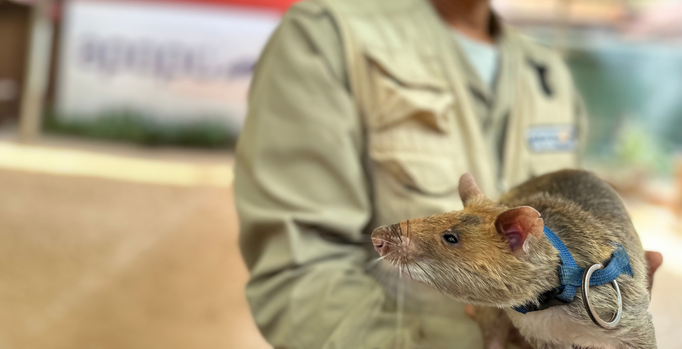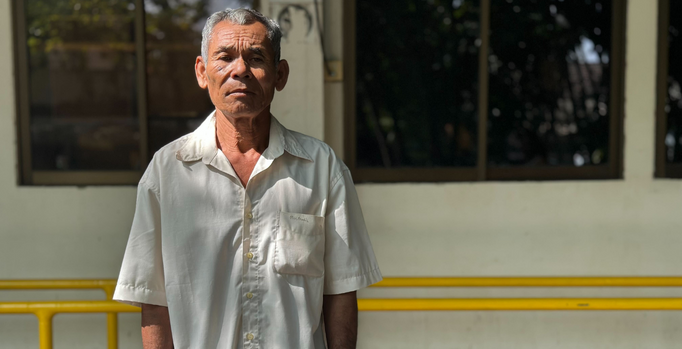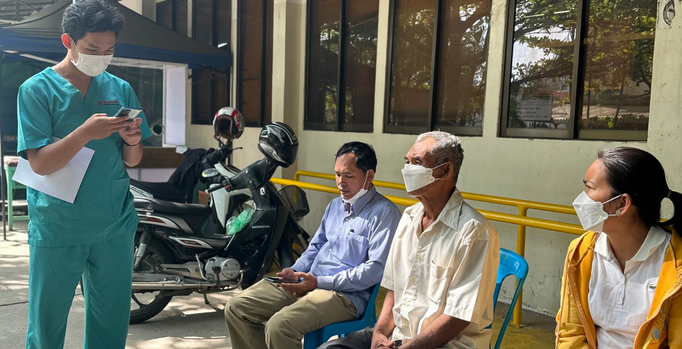For decades, people across Cambodia have been plagued by landmines and unexploded bombs. Despite the war being over, up to 6 million undiscovered and unexploded land mines are thought to still exist in Cambodia, according to United Nations estimates. While the Cambodian government, with the support of international organizations and NGOs, has made significant progress in clearing landmines from the country, it is estimated that it will still take several more decades to completely clear the country of these dangerous remnants of war.

Public information and warning systems are often absent, which means that students walking to school or farmers in their rice fields often end up as unsuspecting victims. Khorn was one such casualty. When Khorn was 15 years old, he suffered a landmine injury. For the next 50 years, Khorn has lived with constant pain, both physically and emotionally.

When we met Khorn this week, we were reminded of the resilience of the human spirit and the power of hope. His story is a stark reminder of our duty to humanity to ensure access to medical care for those most in need. For half a century, Khorn has needlessly lived with pain, struggling to work and support his family. Despite his desperate need for medical attention, Khorn had no access to proper healthcare, as the nearest hospital was either too far or the cost of treatment out of reach. He was forced to live with his wounds.
Accompanied by his family, Khorn finally traveled to our medical partner Children's Surgical Centre with the hope of receiving treatment. He proudly brought with him $65 to support his care from what he could save from farming his land. Most months, his daughter is able to help Khorn and his wife through her work in a nearby factory. By Western standards, $65 may not be a large amount, but it's meaningful for his family that they are contributing to his good health.

The memories of the devastating rule of the Khmer Rouge regime are still fresh for the generation who lived through this tragedy. The legacy of war and conflict continues to pose a serious threat to the safety and security of Cambodian citizens, particularly in rural areas. But incredibly, everyone we met at CSC is turning stories of war into stories of hope. Khorn shared with us, “After surgery, I hope the pain is gone.”
We feel humbled to be part of the movement that is changing the face of healthcare in Cambodia. And we're incredibly grateful to have the most kindhearted community of supporters like you who listen to these stories & show up every day to support our patients, no matter what.
As I take you through the journey of your impact with Watsi in Cambodia, I hope you'll join in today to make a special gift to ensure patients like Khorn don't have to wait for the care they deserve.
Sonam Singh
Storytelling, analytics, and marketing @Watsi